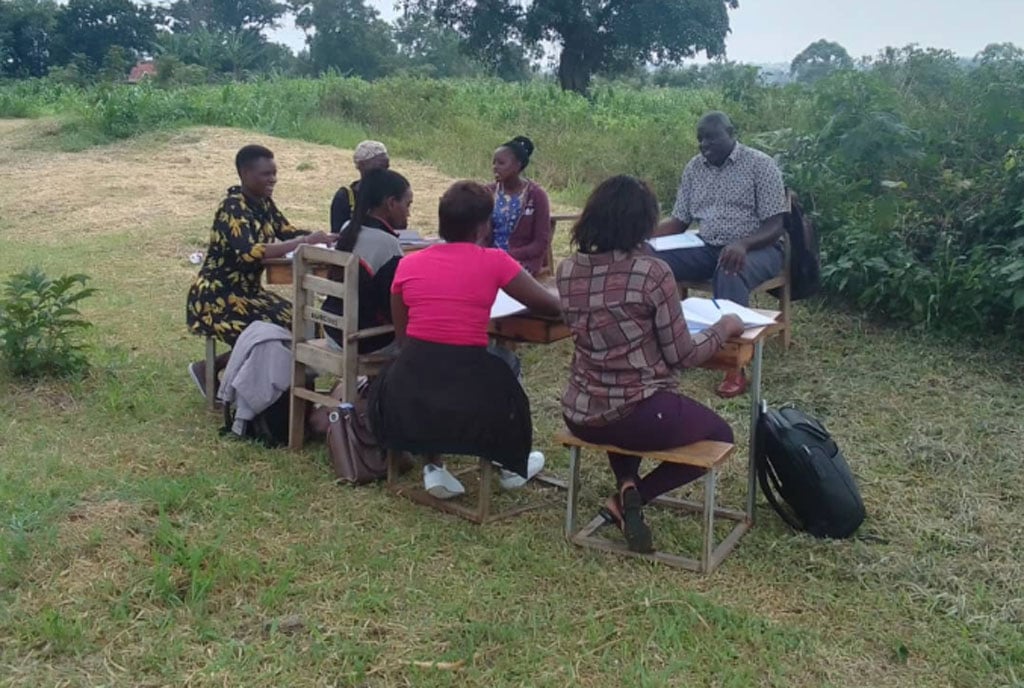NCHE to invalidate 2,000 Busoga University degrees

Some of the Busoga University students are seen on campus on September 20, 2024 at the Iganga based main campus. PHOTO/TAUSI NAKATO.
What you need to know:
- The NCHE has since petitioned the Inspector General of Police (IGP) to intervene in the alleged illegal opening of the embattled Busoga University.
The National Council for Higher Education (NCHE) has said it will not recognise the academic credentials of at least 2,025 students who have been studying at the Iganga-based Busoga University.
The university’s licence was revoked by the NCHE seven years ago for allegedly lacking qualified staff, teaching uncredited courses and awarding fake degrees to more than 1,000 students, mainly of South Sudanese descent, who went on to graduate within a space of two months at the last graduation in 2016.
Other issues raised by NCHE are admission of students without requisite admission criteria, illegal affiliation, lack of up-to-date student records, and failure to conduct progressive student assessments, among others.
However, Daily Monitor has learnt that the university, which was founded in 1999, is irregularly conducting lectures for at least 366 students, while a total of 1,659 students have their graduation pending.
During a recent visit to the university, the gates were open, offices were operating normally, and students were studying without interruption.
“The university was not closed, but only had its licence revoked which does not mean not teaching students,” a source at the institution told Monitor.
However, the NCHE spokesperson, Mr Saul Waigolo, said the 2,025 students’ degrees will be invalidated.
Mr Waigolo said by continuing to hold lectures after its license was revoked, Busoga University faces several risks including awarding illegal qualifications to students, teaching unaccredited academic programmes, and obtaining money from unsuspecting members of the public in the form of tuition by pretence, among others.
“We only recognise students who graduated at the last university’s graduation in 2016, and not the rest of students who have been attending lectures since the license was revoked,” Mr Waigolo said in an interview at the weekend.
According to Mr Waigolo, when the NCHE revoked the licence, they requested the university administration to work towards transferring the continuing students, who had requisite admission criteria, to other universities but it instead sought litigation.
According to the Universities and Other Tertiary Institutions Act (2001) as amended, “. . . the suspension or revocation of a licence shall not affect the validity or other status of any Certificate, Diploma, Degree or other academic award granted by the university in question when still under provisional licence.”
The NCHE has since petitioned the Inspector General of Police (IGP) to intervene in the alleged illegal opening of the embattled Busoga University.
“. . . We have learnt from the media, particularly Monitor that the former Busoga University has allegedly continued to operate despite revocation of the provisional licence. … The purpose of this letter, therefore, is to request you to investigate the matter and take appropriate action,” a September 24 letter signed by the NCHE executive director Prof Mary Okwakol addressed to the IGP reads in part.
Background
In February 2018, Busoga University was handed over to the Ministry of Education to expedite its reopening as a public institution following a directive by President Museveni.
In April 2018, the state minister for Higher Education, Dr Chrysostom Muyingo, was appointed to chair the committee to spearhead its takeover as a public institution.
In July 2023, the Ministry of Education appointed a six-member taskforce committee to kick start the process of reopening the institution.
Ministry of Education sources, however, say the university will reopen in the next (2025/2026) academic year.


